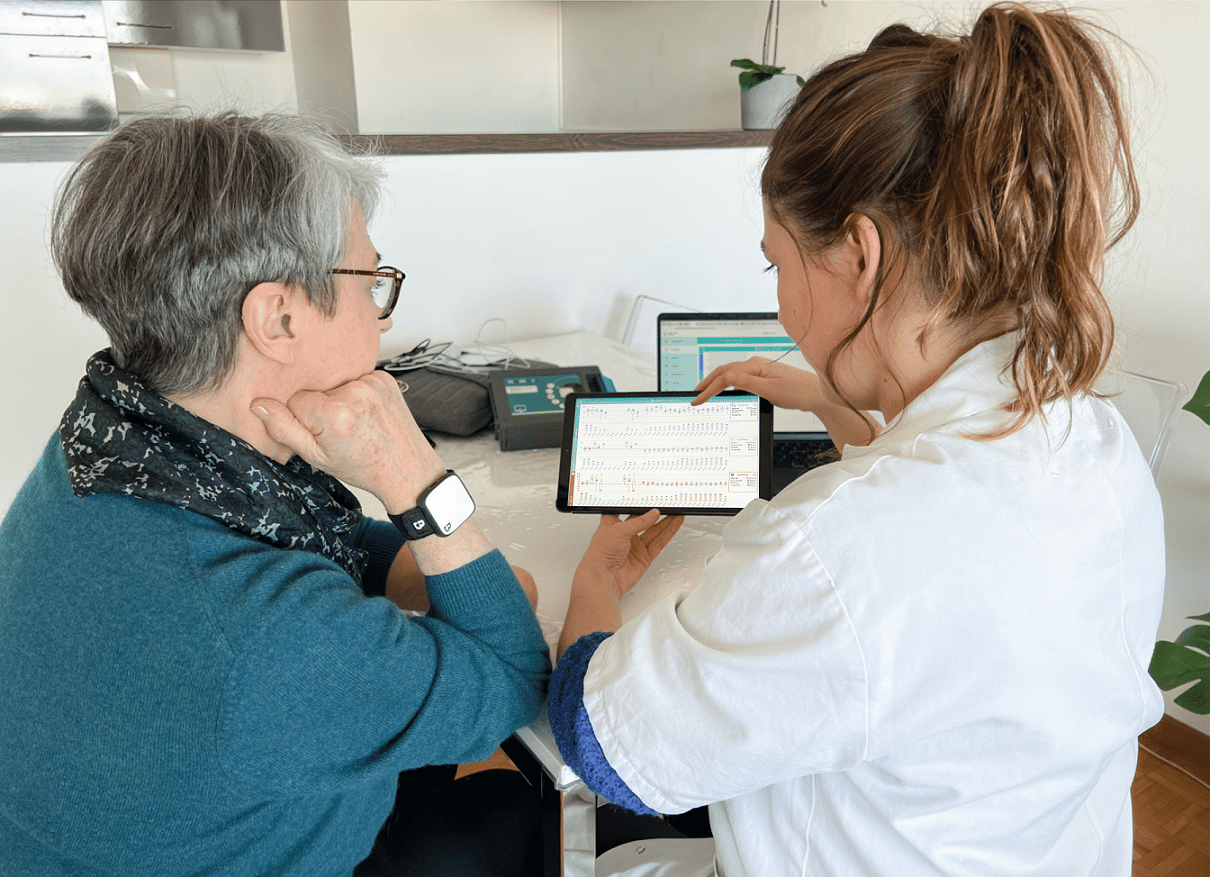COPD (chronic obstructive pulmonary disease), a smoking-related pathology, affects 440 million people worldwide. The crises it triggers, which lead to a significant worsening of the patient’s health, often result in hospitalization or even death. COPD is the third leading cause of death worldwide. It costs the French healthcare system €3.5 billion a year and €48 billion for Europe as a whole.
Biosency, which was founded in 2017, has developed Bora Care, a medical telemonitoring device that alerts healthcare professionals whenever the patient’s condition deteriorates. This predictive medicine tool anticipates crises based on a set of vital signs.
The patient wears a wristwatch-sized bracelet, ideally 24 hours a day. The amount of oxygen in the blood is measured, along with the respiratory rate and the heart rate. A baseline is established over the first two weeks. This will serve as reference to allow the doctor to define alert thresholds.
Data are sent automatically to a platform, either via a smartphone application or via a specially provided router. These data are accessible to both the patient and healthcare professionals (general physicians, pulmonologists, nurses, physiotherapists and so on) to facilitate treatment and care coordination. The warning signs may be evident as much as a week before the actual crisis.
“Anticipating a COPD crisis helps improve patients’ quality of life and has a positive impact on healthcare costs, as hospitalization can often be avoided or at least shortened,” Marie Pirotais, CEO of Biosency.
Starting this year, in addition to data that are available on the platform, there is also a chart that warns if patients change in a way that is not normal. A predictive algorithm will be available in 2024. Doctors will therefore no longer need to analyze the vital signs collected, as they will be alerted by a numerical score.
On May 23, Biosency co-founder Yann Le Guillou presented the results of the latest clinical study carried out on Bora Care at the prestigious American Thoracic Society International Conference, in Washington. The results demonstrate that the medical device is able to predict a crisis on average three days before hospitalization in 86% of cases, with only 9% false positives.
“Participation at the American Thoracic Society is very important for us. We had to declare to a panel of experts that we had been successful and that we had achieved the objective that we had set ourselves when launching the business, namely predicting crises, with compelling and reliable figures,” Marie Pirotais, CEO of Biosency.
The study involved over 200 patients. 84% were more willing to accept pulmonary rehabilitation exercises when being monitored via the bracelet, which they wear 90% of the time for more than six months. 95% say that overall they felt reassured. 1 in 2 doctors say that they have modified their prescription of oxygen therapy thanks to the data collected on their patients.
Biosency has also started to study other chronic respiratory diseases, such as pulmonary fibrosis, and co-morbidities such as heart problems.
It has just entered into a business partnership with Australian firm ResMed, a manufacturer of CPAP and respiratory care machines and world leader in 140 countries. The agreement covers 11 countries (France, Belgium, the Netherlands, Luxembourg, Germany, Italy, Spain, Portugal, Algeria, Morocco and Tunisia), considerably extending Bora Care’s sales territory.
The startup is currently raising funds so it can continue R&D on predictive algorithms, widen their indications, and finance new clinical trials.



